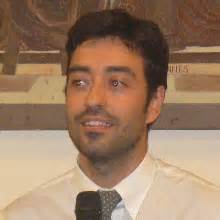| Session | 00 SES 05.2 |
| Time | Wednesday, 5 September, 11:00 - 12:00 |
| Location |
Konzertsaal/Auditorium (Five minute walk from main building. There will be student helpers in “ask me” t-shirts to guide you) |
Multicultural Society and Educational Responses: The Intercultural Approach as a Strategy for Combating Social Exclusion
This contribution focuses on use of intercultural approaches to education to promote dialogue and cultural exchange amongst natives and foreigners. Under this approach the various forms of diversity (cultural, gender, social class etc.) become an important point of reference in educational processes, providing an opportunity for all.
If such an approach is to go beyond the rhetoric of diversity and really deliver social justice it should operate on three levels: political, critical and transformative.
An intercultural approach should be political because, to quote the extraordinary idea of Paulo Freire, intercultural education cannot be implemented as a politically neutral practice. There must be an overarching objective, and in the case of intercultural education a major aim should be the emancipation of young people of foreign origin.
It should also be critical, in the pedagogical sense, in that it should involve analysis of the educational process that recognises the historical and social factors that have shaped it, thus highlighting the circumstances and context of its development. An intercultural approach to education also requires awareness of the underlying ideological dimensions of any educational practice, as well as the role that education plays in reproducing the status quo and extant forms of social injustice.
Finally, an intercultural approach should be characterised by a firm commitment to social change, through design of educational tools for transformation and efforts to combat the dynamics which generate marginalisation and exclusion.
A vision of education is inevitably connected to a vision of society and the men and women who live within it. As such, intercultural education should be anchored to a vision of an intercultural society in which relationships are inspired by the principles of democracy, cultural openness and social justice.
Bio

Marco Catarci is Associate Professor of Intercultural Education at the Department of Education, Roma Tre University. He holds a PhD in Education and collaborates with the Research Centre on Intercultural and Development Education at Roma Tre University. He is member of the PhD School in Educational Research and Theory and has been a member of the Italian National University Council. He has taken part in many national and European research projects in the field of education and has presented several papers at international conferences. His major research interests include intercultural education, cultural mediation and inclusion of refugees and is the author of books, articles and research reports on these topics.
PDF of Conference Programme
Please consider the environment and do NOT print the entire Programme. The Venue Booklet will be part of the conference material, so no need to print in advance either. Thank you.